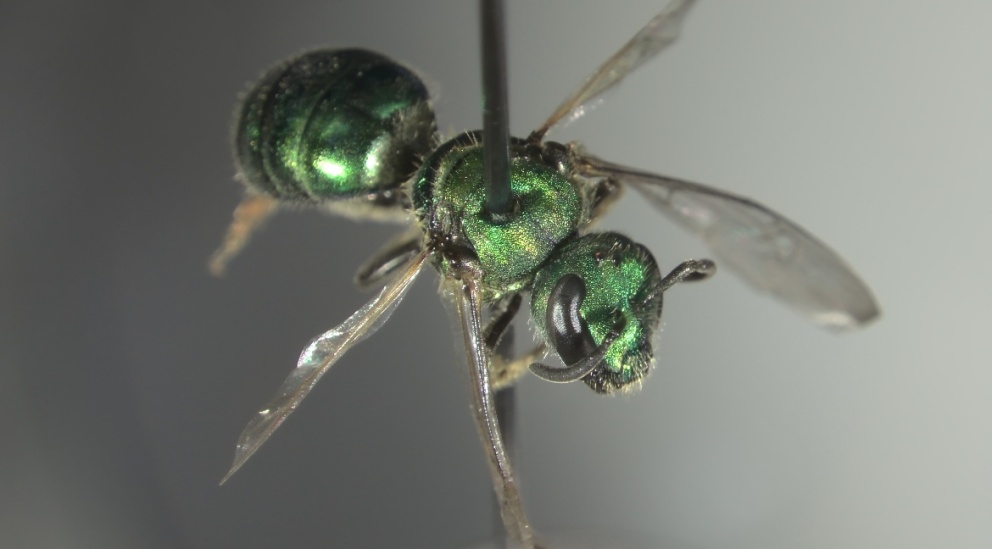Bee-utiful bees!!

Save the bees!! Especially the pretty sparkly ones! Most bee research is focused on ways to use pollination to increase profits and crop yields or is focused on bee conservation in natural habitats. Pollinators found in crops that can self-pollinate are not researched as much because they provide little to no benefits for us humans, but there might be benefits for the bees. Given the predominance of self-pollinating potato crops in New Brunswick, my MSc research is focused on determining wild bee biodiversity and pollen-collecting behaviour in potato ecosystems. I am comparing bees found in potato fields, field margins, and the nearby forested landscapes. I am also trying to determine whether the bees in this ecosystem use pollen found in the abundant potato monocultures. This is a photo of a beautiful sweat bee (Augochlora pura). She was likely foraging for some pollen and nectar to eat when she mistook our trap for a flower and was caught. This photo was taken while trying to identify her using a microscope. These bees need to be identified using a microscope because they are so tiny that you cannot see all the important characteristics with the naked eye.